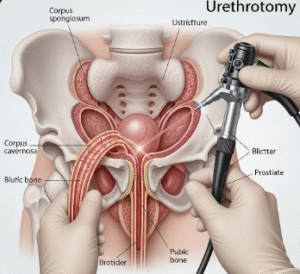Overview
Helicobacter pylori (H. pylori) infection is a common bacterial infection that affects the stomach lining and is linked to gastritis, peptic ulcers, and an increased risk of stomach cancer. In Korea, where gastric cancer prevalence is relatively high, early detection and eradication of H. pylori are a major public health focus.
What is Helicobacter pylori (H. pylori)?
H. pylori is a spiral-shaped bacterium that colonizes the stomach lining, leading to chronic inflammation. While many infected individuals remain asymptomatic, the bacteria can cause significant gastrointestinal disorders over time. It affects adults and children and is primarily transmitted through oral-oral or fecal-oral routes.
Symptoms
- Abdominal pain or discomfort, especially in the upper abdomen
- Bloating and excessive burping
- Nausea or vomiting
- Loss of appetite
- Unexplained weight loss
- Indigestion or heartburn
Causes
- Infection with H. pylori bacteria
- Contaminated food or water
- Close contact with infected individuals, particularly within families
- Poor hygiene and sanitation practices
Risk Factors
- Living in crowded or unsanitary conditions
- Family history of H. pylori infection
- Age over 40, increasing risk of gastritis and ulcers
- Smoking and excessive alcohol consumption
- Long-term use of NSAIDs (non-steroidal anti-inflammatory drugs)
Complications
Untreated H. pylori infection can result in:
- Chronic gastritis
- Peptic ulcer disease (stomach or duodenal ulcers)
- Increased risk of gastric cancer
- MALT lymphoma (a rare type of stomach lymphoma)
- Iron deficiency anemia or vitamin B12 deficiency in some cases
Prevention
- Maintain good hand hygiene and proper food safety
- Drink safe, clean water
- Avoid sharing utensils or food with infected individuals
- Seek early testing if there is a family history of gastric disorders
Treatment Options in Korea
Treatment in Korea focuses on eradication of the bacteria and management of complications:
- Diagnosis:
- Urea breath test, stool antigen test, endoscopy with biopsy, or blood antibody tests
- Eradication therapy:
- Standard triple therapy: proton pump inhibitor (PPI) + two antibiotics for 10–14 days
- Quadruple therapy or tailored antibiotic regimens for resistant infections
- Follow-up testing:
- Confirm eradication with breath or stool tests after treatment
- Management of complications:
- Endoscopic treatment for ulcers or lesions
- Monitoring for precancerous changes in the stomach lining
- Specialized hospitals:
- Leading gastroenterology centers such as Samsung Medical Center, Seoul National University Hospital, and Asan Medical Center provide advanced diagnostic and therapeutic care
- Lifestyle guidance:
- Balanced diet, avoiding excessive spicy or acidic foods, and managing stress
With timely diagnosis and treatment in Korea, H. pylori infections can be effectively eradicated, reducing the risk of ulcers and stomach cancer.













